Cold Read online
COLD
OUT OF THE BOX
BOOK 24
Robert J. Crane
COLD
OUT OF THE BOX, BOOK 24
Robert J. Crane
Copyright © 2019 Ostiagard Press
All Rights Reserved.
1st Edition
This book is a work of fiction. Names, characters, places and incidents are products of the author’s imagination or are used fictitiously. Any resemblance to actual events or locales or persons, living or dead, is entirely coincidental.
The scanning, uploading and distribution of this book via the internet or any other means without the permission of the publisher is illegal and punishable by law. Please purchase only authorized electronic editions, and do not participate in or encourage electronic piracy of copyrighted materials. Your support of the author’s rights is appreciated.
No part of this publication may be reproduced in whole or in part without the written permission of the publisher. For information regarding permission, please email [email protected].
CONTENTS
Prologue
1.
2.
3.
4.
5.
6.
7.
8.
9.
10.
11.
12.
13.
14.
15.
16.
17.
18.
19.
20.
21.
22.
23.
24.
25.
26.
27.
28.
29.
30.
31.
32.
33.
34.
35.
36.
37.
38.
39.
40.
41.
42.
43.
44.
45.
46.
47.
48.
49.
50.
51.
52.
53.
54.
55.
56.
57.
58.
59.
60.
61.
62.
63.
64.
65.
66.
67.
68.
69.
70.
71.
72.
73.
74.
75.
76.
77.
78.
79.
80.
81.
82.
83.
84.
85.
86.
87.
88.
89.
90.
91.
92.
93.
Author’s Note
ACKNOWLEDGMENTS
Other Works by Robert J. Crane
Prologue
It wasn’t going to be easy to kill the Governor of Louisiana, but Brianna Glover was damned sure going to get it done.
How? Well, that was the trick, wasn’t it? A simple bullet might do it, but making it simple wasn’t necessarily in her best interest. It boiled down to a few choices, which she coldly assessed. Handgun or shotgun, up close?
Tough. Bodyguards loomed, always, around Governor Ivan Warrington, Louisiana State Police officers sworn to protect him. Could she knock them aside before someone drew a gun and blasted her? Maybe. But maybe not, and Brianna wasn’t much for taking chances. Not for this.
Distance was her friend, she decided, viewing the objective as dispassionately as possible. It was a job to be done, and done as swiftly as could be reasonably accomplished. Planning was required, she decided, and once that was settled, the plan commenced in earnest.
The gun would be a rifle. That gave her distance, and less worry about bodyguards interfering.
A high-caliber weapon, too, to allow for a greater distance. Practice would be her aid—relentless, drilling practice, taking the skills she’d learned in her youth and applying them to shooting. It was perfect, right up her alley.
She finally settled on a .50 BMG round as her optimal choice for this shot. It would kick back on her shoulder like a pissed-off mule, but snipers were hitting targets with them in Afghanistan and Iraq from miles away.
That was, she decided, too cold even for her purposes. She’d do it closer than miles, in New Orleans, with the backdrop of the city to help hide her, and the crowds to blend into so she could escape once it was done. Not the capital, Baton Rouge, where Warrington lived, where he spent most of his time. She’d do it away from “home,” as it were. Let him die off his own turf.
So she had decided it—New Orleans. With a rifle. At a distance of a little over a third of a mile.
Beyond the bodyguards. Past the crowds.
With one eye pressed to her scope, Brianna Glover would watch Ivan Warrington die.
*
On the governor’s online calendar it listed the event in simple terms: Canal Street Ferry Rededication. October 26th, 9:00 AM.
In the local press it was covered with somewhat more glowing terms: GOVERNOR WARRINGTON TO REDEDICATE ALGIERS FERRY; PRICE DROP BACK TO FREE IN MOVE TO AID RESIDENTS.
That was the place, that was the time. Taking a room in a hotel tower a third of a mile away on Canal Street, Brianna started to prepare. She could have picked a closer tower, a closer building. Harrah’s maybe.
She didn’t need a closer building.
A third of a mile. Nineteen hundred or so feet as she’d calculated it—as the crow flew, anyway. She was on the fortieth floor, which added a third dimension of measurement to the calculation.
No matter. A hundred rounds a day, standard .50 BMG, for the weeks leading up to the big event. Then, in the week before, she changed it up, switching to her specially prepared rounds. They worked perfectly, adding a little signature to her plan. Was it, strictly speaking, necessary?
Perhaps not, she assessed again, with a dispassionate eye. But it would add a twist that would plague the investigators after the fact, and she liked that idea for more reasons than one.
So she practiced until the big day, and slept barely a wink in her hotel bed, rising at 5 AM, four hours before it would happen.
There were things that needed to be done, after all. She’d slept poorly, mind focused on the events ahead. Already planning.
First, she hung the DO NOT DISTURB sign on her hotel room door. It wouldn’t do to have her in the middle of preparations—at any level—and have a maid come walking in.
She assembled the rifle from its component pieces by the soft glow of the desk lamp. She’d broken it down and put it together a thousand times in practice, it felt like. In reality it was probably a couple hundred; every day when she started her practice out at the old plantation she’d assemble it. When done, she’d break it down again. Every time, for months and weeks and however long it had taken to plan.
It wasn’t difficult now. She only broke it down so that it didn’t look suspicious in her golf bag, wasn’t obviously a gun, and hid below the top level of the bag, buried among the three woods and nine irons placed in there for cover.
When it was fully assembled, she stuck it back in the golf bag, covering the barrel with a golf club cover. It didn’t look quite right, but it didn’t need to. It just needed to pass in case some overly ambitious maid decided to clean her room while she was gone to get breakfast.
The Ruby Slipper was a brunch and breakfast place just down Magazine Street. Brianna tried not to find dark amusement in the name of
the street, and mostly succeeded. She bypassed the more complex gastronomical experiments on the menu in favor of a basic southern breakfast of eggs, grits, bacon and a biscuit. She ate about half of it, then went back to her hotel room.
When she stepped inside, all was as she’d left it. It was almost eight o’clock, an hour to showtime, and now she checked everything once more.
It was all ready.
The cooler at her feet had drawn an amused look from a bellboy who’d wanted to carry her things for her. She hadn’t smiled as she’d said no, and he’d made a comment about her wanting to BYOB for the LSU game. Brianna just nodded. She was wearing a wig, and trying not to draw much attention. That’d be important to her getaway.
She’d booked several rooms in the hotel, and had an entire suitcase dedicated to changes of clothing, wigs, identity, things to make it possible for her to check in as many times as necessary to make sure she ended up with a room that had a perfect angle for the shot.
It only took the one, fortunately. Luck broke in her favor, as though destiny itself were handing her this opportunity.
She used a spotting scope next to her rifle’s position to acquire the target. The crowds bustled before the ferry terminal—reporters, spectators, politicians who’d been involved in the legislation to re-open the ferry for free. They milled and buzzed, soundlessly, before the terminal, as she watched through her scope.
There he was, right on time.
Always right on time.
He came out of the ferry terminal, had been brought in from a rear entrance. She’d done a little legwork to decide how he’d get there this morning, and it looked like she’d guessed right. Louisiana State Police surrounded him, his bald head shining under the early morning sun.
It took every ounce of her self-control not to take the shot now. She was glad she was at this distance. She wouldn’t have to hear a dull word of it this way.
Brianna pressed her finger against the room window, concentrating. A thick block of frost formed over the glass from her palm, and she held it there for a moment, bonding it around her hand, a solid piece of ice. With her other hand she formed a nail of ice, precise, controlled, to a tiny point, smaller than the needle on a record player. She applied it to the window in an ovoid pattern, making sure she cut enough room for the scope. Didn’t need her shot being skewed by looking through the pane.
Once she’d gently cut into the window, she pulled the cut piece of glass, now bonded to her hand by a thick piece of ice, and dissolved the ice, casting it aside. It left her a foot-high ovoid cut out of the window to slide her scope and gun out.
Perfect.
She didn’t slide the gun out just yet, though. That was the last thing she’d do when she was ready, just in case someone saw. A hole in the window on the 40th floor was a barely noticeable thing. A gun sticking out tended to attract more attention.
She focused in with the spotting scope. At this distance, using her metahuman sight along with the magnifying lenses, she could almost see the hairs between Warrington’s eyebrows. Subtle, fine things, but they were there. She blinked a couple times to lubricate her eyes, then put aside the binoculars as he stopped his glad-handing and took his place behind the podium.
It was time.
She brought the rifle up, but didn’t thrust it out the window. The barrel stopped about an inch short of the glass, and here it would rest, she decided, finding her natural, comfortable position. The stock was against her shoulder, eye just off the scope. She found her target through it, letting the light breeze blow through and gauging the direction.
Out of the west, less than five miles per hour. A nice tailwind for the bullet. She adjusted the scope almost without thinking. She’d been prepared for worse.
Drawing down, Brianna let out her breath. She didn’t draw another.
Instead, she opened her eyes, finding her target through her scope.
With a careful hand, not losing her target, she reached into the cooler at the side of her desk and pulled out the bullet.
This was going to send a message.
Sliding it into the rifle, she closed the bolt, taking in one last breath…
Then let it go.
She opened her eyes again.
There he was.
Behind the podium.
Mouth open to speak.
To lie.
The safety clicked off with the ease of a simple snap.
She placed the crossed lines of the sight over his face—his smug, ugly face—
And stroked the trigger.
The crack of the shot was like a bomb had gone off in the room.
She’d forgotten her hearing protection—the earplugs, the muffs.
It felt as though she’d held her head underwater, the street sounds that had been so obvious a moment before—forty stories below—now gone as surely as if the world outside had died. As if all the cars had stopped. As if that second line band in the distance had quit playing.
Maybe they had. She wouldn’t have heard it if they did, though, because her ears were ringing now, a loud, angry squeal that was going continuously in her head.
She moved to her binoculars, trying to shake off the painful feeling. She had to look. Had to confirm the kill.
Brianna looked through the lenses, trying to ignore the pain that the ringing was causing. She collected her thoughts, stared through the binoculars, saw—
Where the hell was he?
She looked again. He should have been crumpled behind the podium. There should have been swarms of people converging on him, there should have been blood—
There was no blood.
No sign of him.
Where the hell had he gone?
She stared, but only for another moment. Either she’d gotten him and they’d dragged him away. Or—
Brianna had missed.
“Impossible,” she breathed. She’d practiced, trained, for—so long. This was her life, shooting.
She shook it off, head still ringing. There was a timetable to keep to—things that had to happen now.
Calmly, she packed away the rifle in the golf bag, throwing in the spotting scope, the last few things she hadn’t packed before the shot—
How could she have missed?
—away in the suitcase, and rolled out the door less than two minutes after she’d fired—
She couldn’t have missed. Couldn’t have.
—wearing the disguise she’d had on when she’d checked in. Before the first police car rolled up outside, Brianna Glover was slipping out the back of the hotel and into the parking garage in the alley behind it. She almost bumped into a small Chinese lady as she passed, she was so lost in her own thoughts.
“Sorry,” she muttered, turning her head and hustling to her car. She needed to move. She’d be across Pontchartrain shortly, out to Slidell before they even got the investigation rolling. She’d ditch this car and disguise where no one would ever find either of them.
Then she’d settle back to watch the news, because she had to have hit him.
But as she clutched the steering wheel and turned south onto Magazine, the first stirring of doubt crept into her mind.
What if she’d missed?
Well…
“I’ll just have to shoot him again,” she said to the empty car as she turned onto the crowded avenue. “And next time…I won’t miss.”
1.
Sienna
“When you said, ‘It’s good to be back,’” Dr. Charmaine Kashani said, looking down at her notepad, her jet-black hair smoothed over the heavy shoulder pads under her suit, her dark skin a perfect contrast to the beige walls behind her, “how did that make you feel?” She shifted her deep brown eyes up to look right into mine, furrowing her brow slightly in concern.
“Just absolutely effing grand,” I said, blowing air between my lips soundlessly before letting loose my reply. “The way one should feel when being basically blackmailed into a deal involving working for the government in order
to stay out of jail.” My fingers tapped a steady rhythm against the soft black cotton of my dress pants. I tugged at the collar of my suit jacket, which made me feel like I was going to spontaneously combust from the heaviness and the heat it kept in. It also kept the gun on my hip hidden from the public, which was probably a plus given my reputation for killing people.
“I get the feeling you are not being sincere,” Dr. Kashani said, pursing her own lips in concern, either faux or real. It was hard to get a pulse on her.
“I’m probably not,” I said. “Let’s just plan on that. Every word I say is a lie.”
She tilted her head and barely smiled. “What is your name?”
“Charles ‘The Hammer’ Martel.”
“Well, you probably got the middle part right, at least,” she said, sighing and looking back down at her pad. “I can understand you might not want to participate in these sessions—”
“No, I’m so excited to be here. Next week I’ll bring brownies, I swear. Love these dish sessions. They feel kinda one-way, though, with the dishing.”
“Ms. Nealon,” Dr. Kashani said, putting a very serious look on, “surely you must realize that the FBI cannot employ you without being certain of your psychological stability.”
“Given that a few months ago I took on an entire FBI task force composed of criminal metahumans, I’m fairly certain that is not true.”
She brought the pen up to the corner of her mouth. “How did that encounter make you feel?”
I just blinked at her for a second. “Wonderful,” I lied, not even bothering to hide it. “I felt just…so great, knowing my country wanted me dead. It was like an orgasm, but with more people involved than usual.”
“You can’t shock me,” Dr. Kashani said, shaking her head almost sadly, a little smile on her lips. “I’ve examined serial killers, Ms. Nealon—”
“Amateurs compared to me, amirite?”
Dr. Kashani straightened in her chair. “In what way?”
“Body count, at least,” I said.
“Is that something you take pride in?” Dr. Kashani asked, leaning forward. Credit to her—most people tend to lean back when they contemplate how many people I’ve killed.

 The Girl in the Box Series, Books 1-3: Alone, Untouched and Soulless
The Girl in the Box Series, Books 1-3: Alone, Untouched and Soulless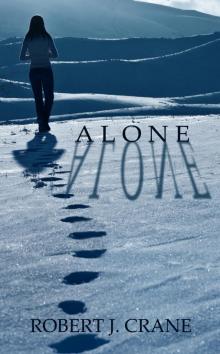 Alone: The Girl in the Box, Book 1
Alone: The Girl in the Box, Book 1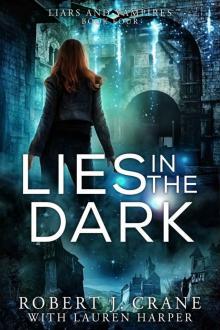 Lies in the Dark
Lies in the Dark Cold
Cold The Gang of Legend
The Gang of Legend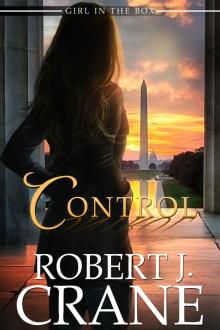 Control: Out of the Box (The Girl in the Box Book 38)
Control: Out of the Box (The Girl in the Box Book 38)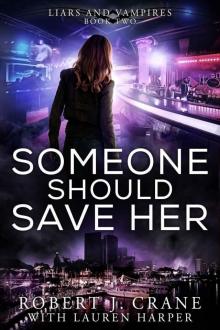 Someone Should Save Her
Someone Should Save Her Ghosts of Sanctuary
Ghosts of Sanctuary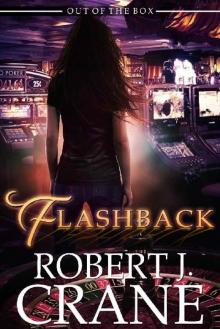 Flashback (Out of the Box Book 23)
Flashback (Out of the Box Book 23)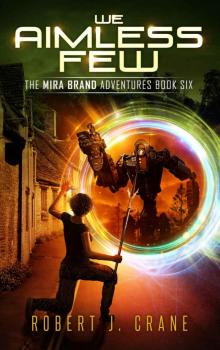 We Aimless Few
We Aimless Few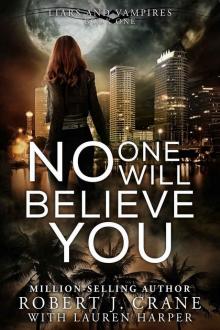 No One Will Believe You
No One Will Believe You The King of the Skies
The King of the Skies Apex
Apex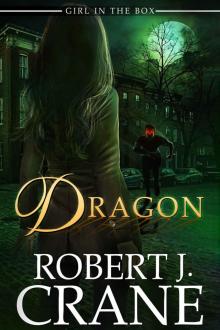 Dragon: Out of the Box (The Girl in the Box Book 37)
Dragon: Out of the Box (The Girl in the Box Book 37) Call of the Hero
Call of the Hero Blood Ties
Blood Ties A Home in the Hills
A Home in the Hills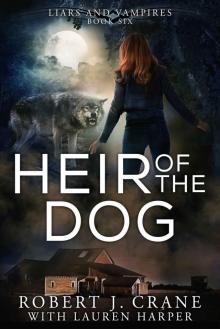 Heir of the Dog (Liars and Vampires Book 6)
Heir of the Dog (Liars and Vampires Book 6)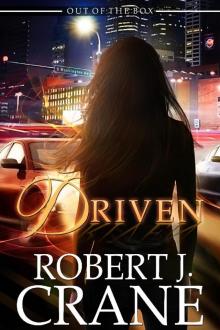 Driven
Driven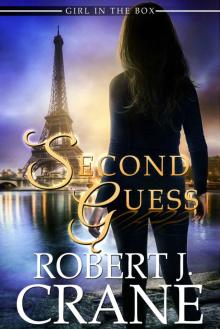 Second Guess (The Girl in the Box Book 39)
Second Guess (The Girl in the Box Book 39) A Respite From Storms
A Respite From Storms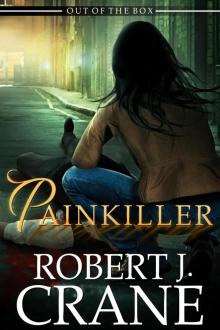 Painkiller
Painkiller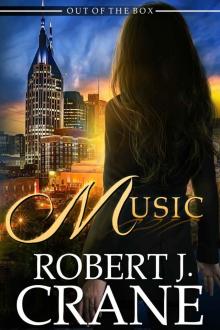 Music: Out of the Box 26 (The Girl in the Box Book 36)
Music: Out of the Box 26 (The Girl in the Box Book 36)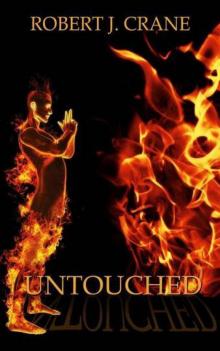 Untouched tgitb-2
Untouched tgitb-2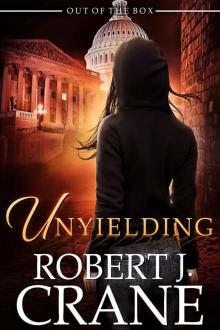 Unyielding (Out of the Box Book 11)
Unyielding (Out of the Box Book 11)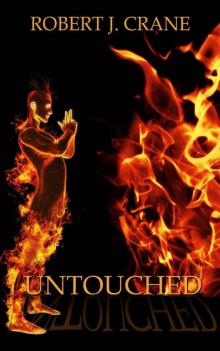 The Girl in the Box 02 - Untouched
The Girl in the Box 02 - Untouched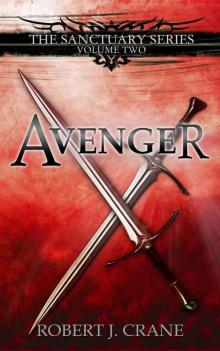 The Sanctuary Series: Volume 02 - Avenger
The Sanctuary Series: Volume 02 - Avenger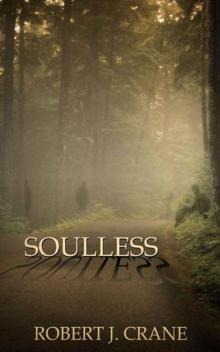 Soulless tgitb-3
Soulless tgitb-3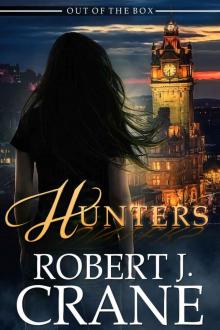 Hunters (Out of the Box Book 15)
Hunters (Out of the Box Book 15) Toxicity (Out of the Box Book 13)
Toxicity (Out of the Box Book 13)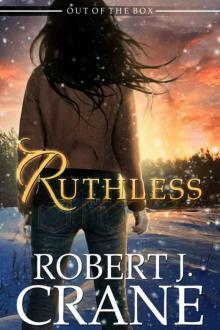 Ruthless (Out of the Box Book 3)
Ruthless (Out of the Box Book 3)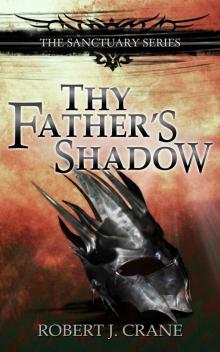 Thy Father's Shadow (Book 4.5)
Thy Father's Shadow (Book 4.5)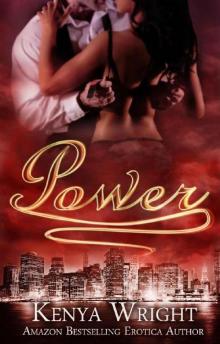 Power
Power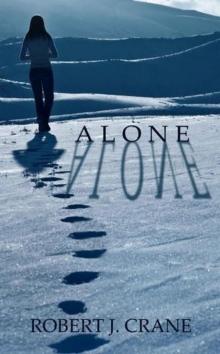 Alone tgitb-1
Alone tgitb-1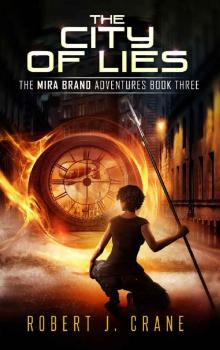 The City of Lies (The Mira Brand Adventures Book 3)
The City of Lies (The Mira Brand Adventures Book 3)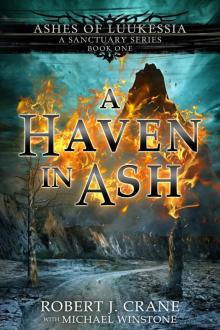 A Haven in Ash
A Haven in Ash Family
Family Sanctuary Tales (Book 1)
Sanctuary Tales (Book 1) Hero
Hero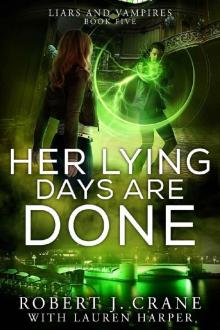 Her Lying Days Are Done
Her Lying Days Are Done![Crane, R [ Southern Watch 03] Corrupted Read online](http://i1.bookreadfree.com/i1/04/02/crane_r__southern_watch_03_corrupted_preview.jpg) Crane, R [ Southern Watch 03] Corrupted
Crane, R [ Southern Watch 03] Corrupted Tormented
Tormented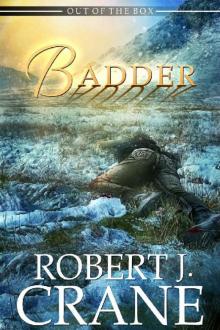 Badder (Out of the Box Book 16)
Badder (Out of the Box Book 16)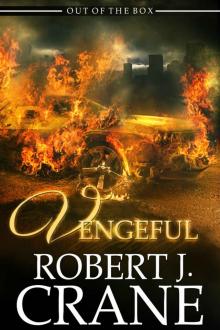 06 - Vengeful
06 - Vengeful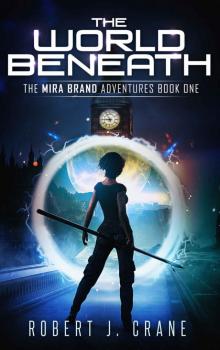 The World Beneath (The Mira Brand Adventures Book 1)
The World Beneath (The Mira Brand Adventures Book 1) Heretic (The Sanctuary Series Book 7)
Heretic (The Sanctuary Series Book 7)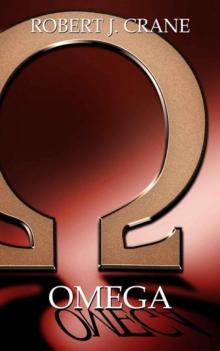 Omega tgitb-5
Omega tgitb-5 The Tide of Ages (The Mira Brand Adventures Book 2)
The Tide of Ages (The Mira Brand Adventures Book 2)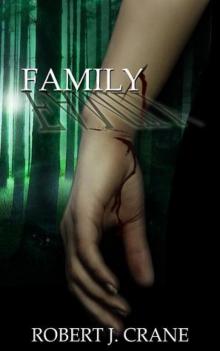 Family tgitb-4
Family tgitb-4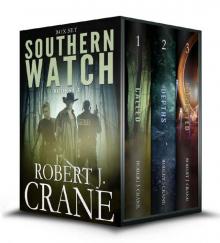 The Southern Watch Series, Books 1-3: Called, Depths and Corrupted
The Southern Watch Series, Books 1-3: Called, Depths and Corrupted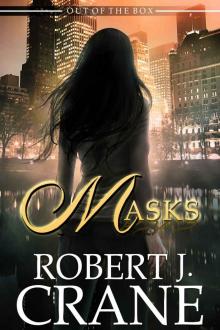 Masks (Out of the Box Book 9)
Masks (Out of the Box Book 9)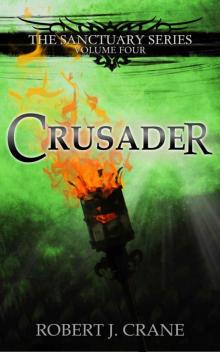 Crusader: The Sanctuary Series, Volume Four
Crusader: The Sanctuary Series, Volume Four Out of the Box 7 - Sea Change
Out of the Box 7 - Sea Change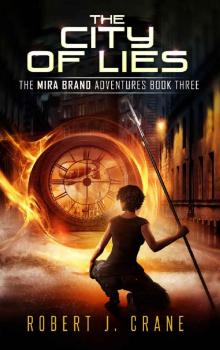 The City of Lies
The City of Lies Warlord
Warlord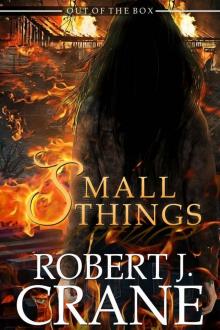 Small Things (Out of the Box Book 14)
Small Things (Out of the Box Book 14) The Sanctuary Series: Volume 03 - Champion
The Sanctuary Series: Volume 03 - Champion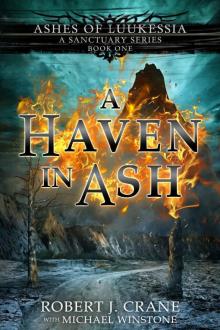 A Haven in Ash (A Sanctuary Series) (Ashes of Luukessia Book 1)
A Haven in Ash (A Sanctuary Series) (Ashes of Luukessia Book 1)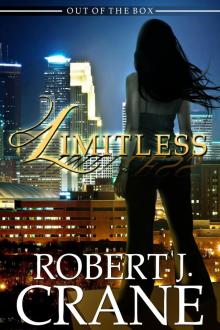 Limitless
Limitless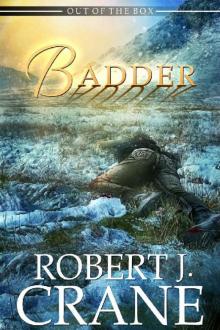 Badder
Badder Legend
Legend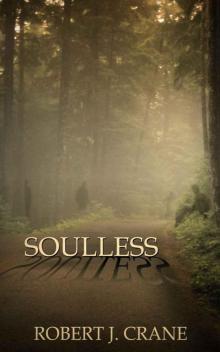 The Girl in the Box 03 - Soulless
The Girl in the Box 03 - Soulless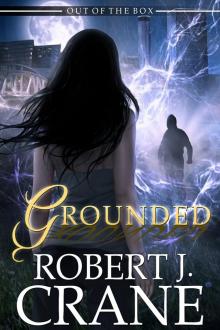 Grounded (Out of the Box Book 4)
Grounded (Out of the Box Book 4) In the Wind (Out of the Box Book 2)
In the Wind (Out of the Box Book 2)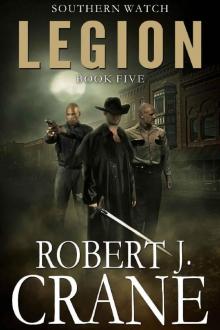 Legion (Southern Watch Book 5)
Legion (Southern Watch Book 5)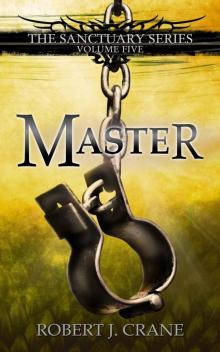 Master (Book 5)
Master (Book 5)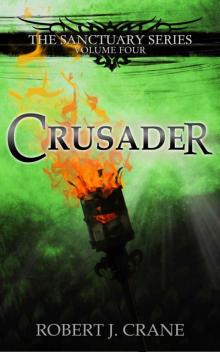 Crusader s-4
Crusader s-4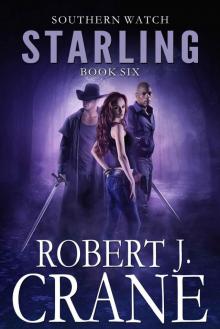 Starling (Southern Watch Book 6)
Starling (Southern Watch Book 6)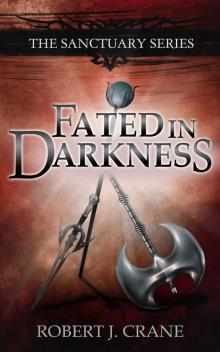 Sanctuary 5.5 - Fated in Darkness
Sanctuary 5.5 - Fated in Darkness